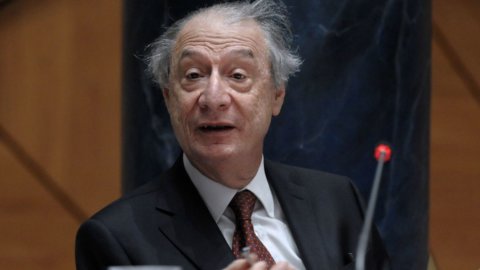I state that I have followed the Highway affair exclusively from the press and that I have no other information than the Atlantia press release of 17 September 2019, so my reflection may be incomplete but could serve to direct press inquiries.
Given the seriousness of the events and the evidence emerging from the criminal investigation, it is understandable that the partners, the reference shareholder, asked for "discontinuity", which they would have obtained with the resignation of Atlantia's CEO. As a result of the shareholders' request, the managing director of the company resigned.
Ma the objective of the partners remains on the purely formal level of their relations with the company; and their image towards the public opinion. On the other hand, the situation that has come to be established in the relationship between the board and the managing director is different, the decisive point for determining the "discontinuity".
According to the press release, the board accepts the director's resignation: “by defining an amicable resolution with the same” (transaction?). The parties agree on the opportunity to give formal discontinuity in the management of the company. Moreover, the board does not separate its responsibilities from the responsibilities of the delegate. Indeed according to the press release the council reconfirms the work of the delegate, for which he is thanked, and remunerated: "The agreement provides for the payment of an amount as an incentive to leave". At the civil level, the board certifies that it has been able to supervise the conduct of the affairs for which the directors assume responsibility.
Then a we have no discontinuity on the technical-juridical level of the relationships between the board of directors and the chief executive officer (also director); we have continuity; which also ends up watering down the formal detachment of the members on the substantive level of the group.
If the board intended to separate their responsibilities it should have revoke the proxies and the director himself from office for just cause, by launching an investigation to ascertain whether the events justified the exercise of the liability action, possibly suspending for the time being any payment of remuneration that was due pursuant to the contract, pending the results of the investigations: revocation for just cause excludes remuneration. The decision would not have been far-fetched in the face of the seriousness of the events and the new elements that are emerging from criminal investigations
The council seems to have taken this hypothesis into account; of the possibility of exercising liability action, where I read: should "proved and ascertained malicious conduct emerge, currently not known, put in place to the detriment of the Company or the Group". Evidently the penal level is confused with the civil level. Civil liability is integrated if the fault is proven, assessed on the parameter of diligence, even if what happened is not attributable to the intention of the agent: it is fault due to dysfunction in the organization of the company, inadequate to avoid the disasters that are achieved. Fault integrates civil liability, not criminal liability.
°°°°°The author is a lawyer and professor of commercial law at the Luiss University of Rome
°°°




